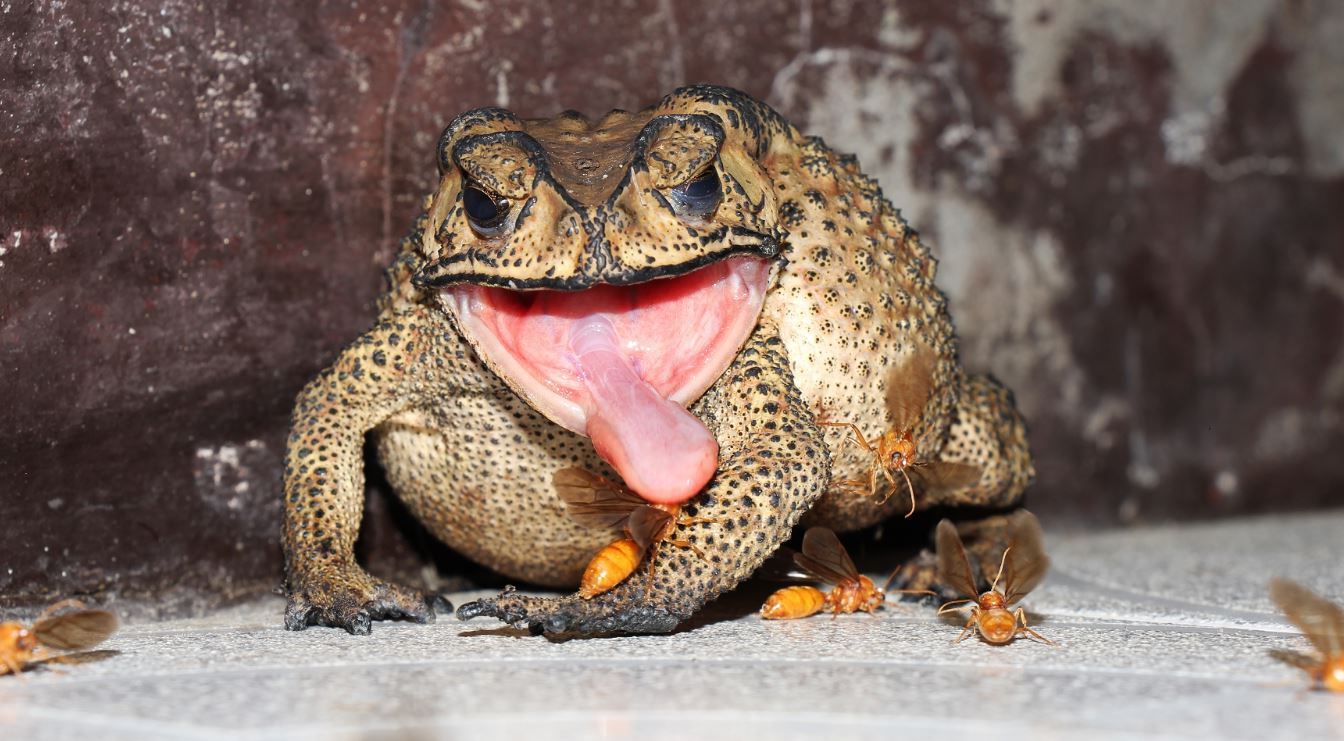
Ever wondered why frogs always seem to be smiling? Or how they can leap distances over 20 times their body length? Frogs are among nature's most intriguing creatures, and there's a lot more to these amphibians than meets the eye. From their survival strategies to their unique behaviors, frogs have some tricks up their sleeves that might just surprise you. Did you know that some frogs can freeze without dying or that others have a natural antifreeze in their blood? Well, buckle up because we're about to hop into the world of frogs, unveiling 12 fascinating facts that will change the way you look at these hoppy friends. Whether you're a seasoned herpetologist or just curious about the natural world, these insights are sure to leap beyond your expectations!
Key Takeaways:
- Frogs are amazing creatures that can breathe through their skin and have a wide range of vocalizations, making them adaptable and great communicators in their habitats.
- Frogs play a crucial role in ecosystems by controlling insect populations and serving as indicators of environmental health, but they also face threats from human activities and environmental changes.
What Makes Frogs So Unique?
Frogs are among the most versatile and widespread amphibians on our planet, boasting features and abilities that many find astonishing. Their unique characteristics allow them to thrive in diverse environments, from tropical rainforests to arid deserts.
-
Frogs can breathe through their skin. This remarkable ability allows them to absorb oxygen directly from the air or water, making them highly adaptable to both aquatic and terrestrial habitats.
-
They have a wide range of vocalizations. Each species has its own set of calls used for attracting mates, signaling distress, or warding off predators. Some frog calls can be heard up to a mile away.
The Incredible Life Cycle of Frogs
The transformation frogs undergo from eggs to adults is one of nature's most fascinating processes, showcasing the incredible adaptability and resilience of these creatures.
-
Frogs start their lives as eggs in water, which then hatch into tadpoles. Tadpoles breathe through gills and live entirely in water.
-
As tadpoles mature, they undergo metamorphosis, a process where they develop legs, their gills are replaced by lungs, and they gradually adapt to life on land.
Frogs' Role in Ecosystems
Frogs play a crucial role in maintaining the balance within ecosystems. They are both predators and prey, contributing to the health of their habitats in significant ways.
-
Frogs help control insect populations. By feeding on insects, they reduce the need for pesticides and help prevent the spread of diseases like malaria.
-
Their own presence in the food chain supports a variety of predators. Birds, snakes, and even larger mammals rely on frogs as a key food source.
Fascinating Frog Adaptations
Over millions of years, frogs have developed an array of adaptations that allow them to survive and thrive in environments ranging from freezing cold to scorching heat.
-
Some frog species can survive being frozen solid during winter. Their bodies produce a natural antifreeze substance that prevents ice from forming in their vital organs.
-
Certain frogs can change color for camouflage, temperature regulation, or as a response to mood and health, making them masters of disguise.
Threats to Frog Populations
Despite their adaptability, frogs face numerous threats from human activities and environmental changes, highlighting the need for conservation efforts.
-
Habitat destruction, pollution, climate change, and diseases like chytridiomycosis are major threats to frog populations worldwide.
-
Frogs are indicators of environmental health. A decline in frog populations often signals broader ecological issues that can eventually affect humans.
Unusual Frog Facts
Beyond their ecological importance and biological interest, frogs have a few tricks up their sleeves that might surprise you.
-
The Goliath frog is the largest frog species in the world, capable of growing up to 32 cm in length and weighing as much as a newborn human baby.
-
There's a frog species in Indonesia that has no lungs – it breathes entirely through its skin. This unique adaptation allows it to live a fully aquatic lifestyle, avoiding predation by staying submerged.
A Leap into Frog Facts
Frogs are truly remarkable creatures, offering a glimpse into the diversity and adaptability of nature. From their incredible life cycle and survival strategies to their environmental significance, these amphibians play a crucial role in our world's ecosystems. Understanding frogs helps us appreciate the delicate balance of nature and the importance of conservation efforts. Whether it's their astonishing ability to freeze and thaw with the seasons or their use of camouflage for protection, frogs continue to fascinate and inspire. By learning more about them, we're reminded of our connection to all living things and the responsibility we share in preserving their habitats. So, next time you hear a frog's croak, remember it's not just a call into the night; it's a reminder of the incredible biodiversity our planet has to offer.
Frequently Asked Questions
Was this page helpful?
Our commitment to delivering trustworthy and engaging content is at the heart of what we do. Each fact on our site is contributed by real users like you, bringing a wealth of diverse insights and information. To ensure the highest standards of accuracy and reliability, our dedicated editors meticulously review each submission. This process guarantees that the facts we share are not only fascinating but also credible. Trust in our commitment to quality and authenticity as you explore and learn with us.


